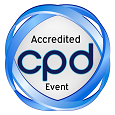
Jean-Didier Maréchal
Universitat Autònoma de Barcelona, Spain
Title: GAUDIMM: Widening the application of genetic algorithms for molecular modeling
Biography
Biography: Jean-Didier Maréchal
Abstract
Here, I present an optimitzation plateform for 3D molecular design based on a multi-objective genetic algorithm. GAUDIMM (Genetic Algorithm Under Design Inference and Molecular Modeling) is able to take several chemical descriptors (genes) at once and optimize them against a number of structural evaluators (objectives). Its aim is to provide with physically sound 3D models and its particularity is to allow the researcher to fill the geometric search with information generally partial provided by different sources, including data from other levels of theory, experiments or chemical intuition. The researcher only has to chose the adequate genes and objectives for his/her problem. GAUDIMM is provided with an API and the users can code their own extensions to adapt the optimization engine to their needs. With the already available built-in descriptors, one is able to select several molecules at once (think about competitive multiligand protein-ligand dockings), explore conformational flexibility (torsion angles and rotamers) and chemical variability (mutated residues, chemical group replacements). On the optimization side, a plethora of objectives have already been implemented from scoring functions to accurate force field energy calculations, simplified chemical interactions (hydrogen bonds, hydrophobic patches, steric clashes, covalent bond formation), geometric evaluation (distances, angles, surfaces areas, volumes, etc..) and metallic coordination. To date, several projects are challenged to tackle by standard computational methodologies have been successful thanks to GAUDIMM and include artificial enzyme re-design, geometries of metal-coordinated peptides and biosensors. While docking is not its main target, our platform even reports good benchmarks when tested against commonly used datasets.

